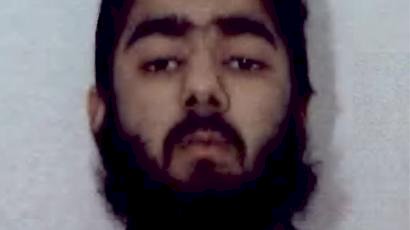London Bridge: Who was the attacker?

Police have named the London Bridge attacker as Usman Khan, who was previously jailed for his part in a plot to bomb the city's stock exchange.
Khan, 28, was out on licence from prison when he killed two people and injured three others in the stabbing attack on Friday, before he was shot dead by armed police.
He had been living in Stafford since being released from prison on licence last December, the BBC has been told.In 2012, he was sentenced to indeterminate detention for "public protection" with a minimum jail term of eight years.This sentence would have allowed him to be kept in prison beyond the minimum term.
But in 2013 the Court of Appeal quashed the sentence, replacing it with a 16-year-fixed term of which Khan should serve half in prison.
At the time, Lord Justice Leveson said: "There is an argument for concluding that anyone convicted of such an offence should be incentivised to demonstrate that he can safely be released; such a decision is then better left to the Parole Board for consideration proximate in time to the date when release becomes possible."

Born and raised in Stoke-on-Trent, Khan was originally jailed along with eight others.The men, inspired by the ideology of al-Qaeda, had been under surveillance by MI5.The group of nine had been engaged in several plans, one of which involved a plot to put a pipe bomb in the London Stock Exchange.
Khan and other plotters from Stoke had also been heard discussing potential attacks in their city, including leaving explosive devices in toilets in pubs and clubs in the Stoke area.At one point Khan was monitored in conversation about "how to construct a pipe bomb" from a recipe in an al-Qaeda magazine.
The men had also been funding a proposed madrassa - a college for Islamic instruction - abroad, which was to be used for firearms training and which would have been attended by Khan.
The court of appeal judgement said: "The groups were clearly considering a range of possibilities including fundraising for the establishment of a military training madrassa in Pakistan, where they would undertake training themselves and recruit others to do likewise, sending letter bombs through the post, attacking public houses used by British racist groups, attacking a high profile target with an explosive device and a Mumbai-style attack."It added that they had "serious long term plans" to send Khan and other recruits for "training and terrorist experience".
"Should they return to the UK they would do so trained and experienced in terrorism," the judgement continued."They engaged with the others who were contemplating short term attacks in the UK but rightly considered themselves to be more serious jihadis than the others."
